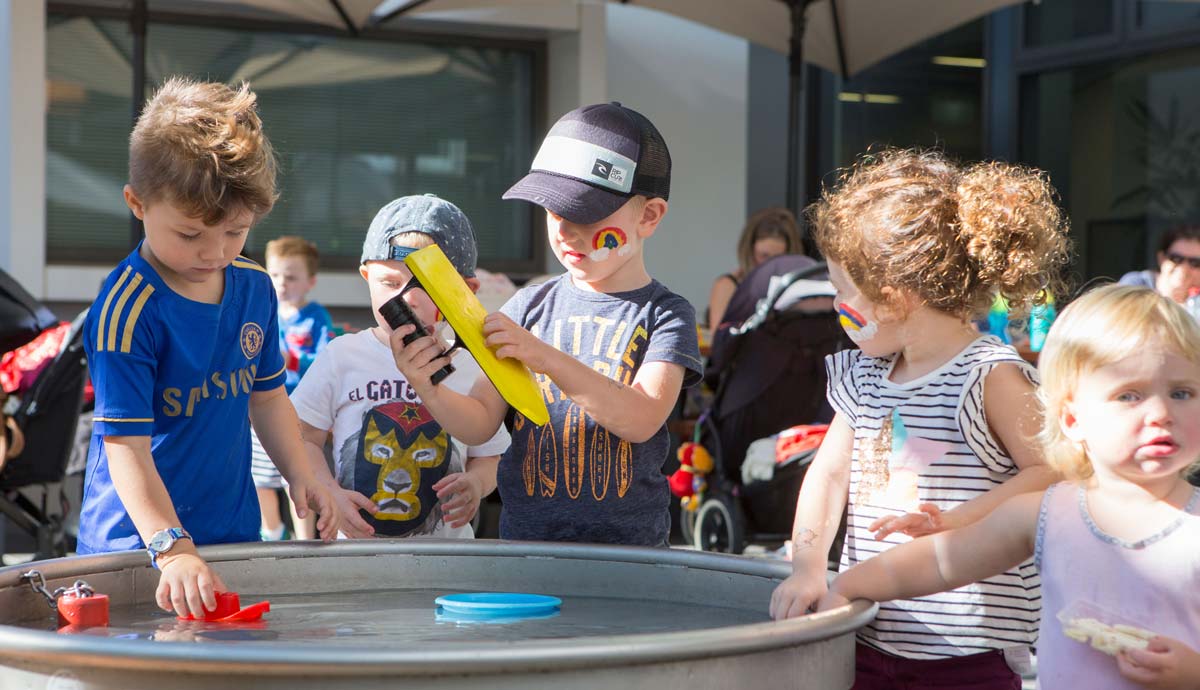September 19, 2018
Philanthropic grant to help Early Start develop new model of service
Trust and community connections the key to improving health and wellbeing outcomes
Putting children and parents at the forefront of decisions about what learning, health and wellbeing services they need could vastly improve child development outcomes, particularly in regional and remote areas.
The University of Wollongong’s (UOW) Early Start has received a $500,000 grant from the Ian Potter Foundation to develop a model of service integration that is aimed at connecting families with services that are relevant to their local needs.
The model proposes using early childhood education and care settings, such as childcare centres and preschools, as a safe, trusted and accessible place to connect children and family with relevant services.
Health and education services include those targeted at children, such as nutrition or speech pathology, through to help for adults and families with mental health or parent education programs.
However, the tendency to roll out the same suite of services in each location has led to inefficient and less effective use of support services, while the number of programs on offer can create duplication or overwhelm parents.
The result is reduced engagement, particularly in regional and remote areas with high levels of disadvantage.
Through its partnership with 41 early childhood settings across regional New South Wales and the Australian Capital Territory, Early Start has developed an understanding of the diversity and complexity in community needs and the difficulty in connecting children and families with the support they need.
“We know that two years of high-quality early childhood education and care can change the trajectory of learning, health and general wellbeing for a child,” said Dr Cathrine Neilsen-Hewett, Academic Director of the Early Years Program at UOW.
“Yet, in areas of economic disadvantage, many are not accessing vital services and they risk being left behind in their development and wellbeing.
“Having one place that combines early childhood education with access to other health and wellbeing supports works, but it has to fit the local situation.
“If the community has ownership of deciding the services they need, it will build the trust and connections that are needed to achieve effective outcomes for children and families.”
The model will allow an early childhood centre to develop a picture of the child and family and link them with the resources young children and families need to thrive at the place they are most likely to access them.
It also proposes a network of professionals working together, rather than in isolation, to help the child and family, as well as professional learning supports for early childhood staff.
Evaluation tools will be developed to map accessibility and timely uptake of services to monitor the project effectiveness.
Early Start Chief Executive Officer Anita Kumar said the work was important because it recognised that each community’s needs are unique.
“The funding will help us create a framework to identify the community needs, available resources and develop a model for how that will work, through on-site services, virtual or in partnership with other providers.
“We won’t stop with helping communities decide what they need, we’ll also help with the physical integration of the services on-site or implementing technology that connects families to services to provide early intervention and reduce waiting periods.”
The Ian Potter Foundation is one of Australia’s major philanthropic foundations. It provides grants to support organisations working to benefit the community across a wide range of sectors including the arts, environment, science, medical research, education and community wellbeing.
The foundation aims to support and promote a healthy, vibrant and fair community for the benefit of all Australians.
